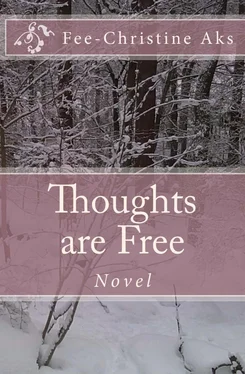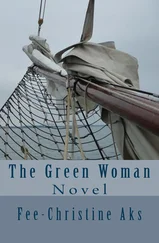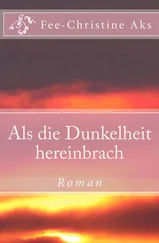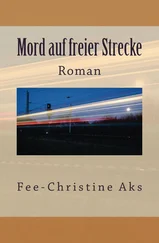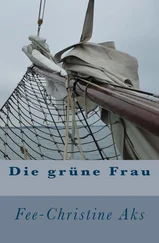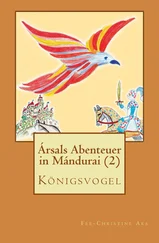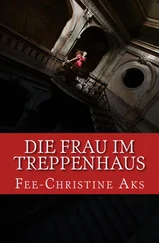Fee-Christine Aks - Thoughts are Free
Здесь есть возможность читать онлайн «Fee-Christine Aks - Thoughts are Free» — ознакомительный отрывок электронной книги совершенно бесплатно, а после прочтения отрывка купить полную версию. В некоторых случаях можно слушать аудио, скачать через торрент в формате fb2 и присутствует краткое содержание. Жанр: unrecognised, на немецком языке. Описание произведения, (предисловие) а так же отзывы посетителей доступны на портале библиотеки ЛибКат.
- Название:Thoughts are Free
- Автор:
- Жанр:
- Год:неизвестен
- ISBN:нет данных
- Рейтинг книги:5 / 5. Голосов: 1
-
Избранное:Добавить в избранное
- Отзывы:
-
Ваша оценка:
- 100
- 1
- 2
- 3
- 4
- 5
Thoughts are Free: краткое содержание, описание и аннотация
Предлагаем к чтению аннотацию, описание, краткое содержание или предисловие (зависит от того, что написал сам автор книги «Thoughts are Free»). Если вы не нашли необходимую информацию о книге — напишите в комментариях, мы постараемся отыскать её.
Thoughts are Free — читать онлайн ознакомительный отрывок
Ниже представлен текст книги, разбитый по страницам. Система сохранения места последней прочитанной страницы, позволяет с удобством читать онлайн бесплатно книгу «Thoughts are Free», без необходимости каждый раз заново искать на чём Вы остановились. Поставьте закладку, и сможете в любой момент перейти на страницу, на которой закончили чтение.
Интервал:
Закладка:
Fee-Christine Aks
Thoughts are Free
Novel
Dieses ebook wurde erstellt bei

Inhaltsverzeichnis
Titel Fee-Christine Aks Thoughts are Free Novel Dieses ebook wurde erstellt bei
Dedication and Author's note Dedication and Author's note For Sophie and Hans This is a fictional story, which takes place against the historic background of the Third Reich during World War II from December 1942 – March 1943. Apart from historically proven persons like Hans and Sophie Scholl, Christoph Probst, Alexander Schmorell, Willi Graf; high ranking members of the NSDAP (Nazi party), all characters appearing in this work are fictitious. Any resemblance to real persons, living or dead, is purely coincidental and not intended.
Instead of a Prologue Instead of a Prologue We will not be silent. We are your bad conscience. The White Rose will not leave you in peace! (Munich, July 1942)
Part 1: Neighbours
Part 2: Leaflets
Part 3: Students
Part 4: Arrest
Part 5: Escape
Part 6: Thoughts
Epilogue
Appendix
Copyright
Impressum neobooks
Dedication and Author's note
For Sophie and Hans
This is a fictional story, which takes place against the historic background of the Third Reich during World War II from December 1942 – March 1943.
Apart from historically proven persons like Hans and Sophie Scholl, Christoph Probst, Alexander Schmorell, Willi Graf; high ranking members of the NSDAP (Nazi party), all characters appearing in this work are fictitious.
Any resemblance to real persons, living or dead, is purely coincidental and not intended.
Instead of a Prologue
We will not be silent. We are your bad conscience. The White Rose will not leave you in peace!
(Munich, July 1942)
Part 1: Neighbours
Hamburg, early December 1942.
Paul is standing behind the window, looking down into the yard. It is snowing. Thick snowflakes are falling from the sky. It has been snowing since the early morning. Down in the yard, the white snow remains on the ground.
Paul can hear how his father steps into the kitchen. He turns around slowly and walks over to the stove to start the fire through the hole for the charcoal. Then he fills water in a kettle and sets it on the stove on the bluish flickering flames. He gets the dried vegetables and bread from the pantry. Father sets a beef bone next to the stove.
“Where is Mother?” Paul wants to know.
“She helps Katja Lipowetzky with Alina. The fever got higher again.”
Father starts to cook the vegetables and the bone, and after a few minutes the aroma of soup fills the kitchen.
“When will Mother be here?” Lured by the smell of the soup, Annemarie stands in the doorway, holding her rag doll in her hand.
“She helps Katja Lipowetzky with Alina”, Father repeats.
Annemarie does not reply anything, just sits down at the table and waits. Who knows when Mother will come home? If Alina is feeling worse again, that can take a long time.
Alina has been sick since last winter. She felt a little better during the summer months, but ever since it is winter again, she is doing worse every day. Alina is only twenty months old.
Paul remembers the day, when Alina was born very well. Back then, almost the entire neighbourhood visited the Lipowetzkys to take a look at the baby. Now, ever since Alina is feeling worse, his mother pays the Lipowetzkys upstairs plenty of visits. Axel says Alina will not survive this winter. Axel should know it. His uncle is a doctor. Paul hopes that he will be wrong this time. Until now, Alina is still alive.
“Hey Paul! Stop dreaming. Otherwise we will eat all your food.”
Father’s voice interrupts Paul’s thoughts. Quickly he sits down at the table, next to Annemarie, who looks at the quarter loaf of bread with hungry eyes. Father sets the soup down on the table. Then he gets Louise out of her crib and puts her on his lap. Paul hands out the soup and some bread.
Father spoon-feeds Louise. She is two years old already, but very skinny. The reason is that they do not have much money to spend. The majority of the money, Father is making at Blohm & Voss dockyards as a deckhand, goes towards the rent payment. They have to buy wood and charcoals for heating and groceries from the remaining money. They can only afford new clothes once a year, if at all. Therefore Paul is still wearing his coat he has had over the past three years, even though he outgrew it a long time ago.
Father often complains at home that the workers do not get paid well. He builds warships for the Führer and is working himself to death. The Führer only pays a pittance, barely enough to feed himself, but it is close to impossible to feed a family of five with such a small wage. The conditions are almost as bad as before the revolution twenty years ago, Father says. There were more groceries available back then, but they rarely have enough anyway, because money was so tight. Things would be different, if they had an actual victory back then, Father says.
The revolution shouldn’t even be called that, because it only achieved a weak republic with the government changing constantly.
Father and his comrades had something different in mind in 1918, when they marched together with the other red jacks from Kiel to Berlin to down throw the Emperor of Germany. They wanted to found a socialistic state, a real People’s Republic. Everyone would have had the same rights, there wouldn’t have been any workers or employers, and everybody would have been equal.
Paul however cannot imagine how this would work. There always has to be somebody in a higher position, who’s in charge and leads the others. Even the new state that was established after the down throw of the German Emperor and lasted for fourteen years had a man at its head.
At first, it was the rather cautious Reich President Friedrich Ebert, then his follower Paul von Hindenburg, an old general with a moustache like the emperor Wilhelm.
At the beginning, the principle of majority rule had worked more or less, Father had explained. But after the big economic collapse and an increasing election success for the brown shirts, almost every third Sunday became an election Sunday. Riots and presidential governments with so-called emergency decrees were the consequence. There was a constant change at the top: Reichskanzler (Imperial Chancellor) Brüning, then Reichskanzler von Papen and after that Reichskanzler Schleicher – one debilitated government after the other.
And on top of that, they had quarreling parties and a massive political shift to the right, towards the Nationalists and the Fascists, which Father fought till the end. He fought with posters and went to demonstrations; until he was arrested at the beginning of 1933. He came back after three days, deadly tired and with a broken left hand.
Ever since, Father is trying to keep quiet. Paul knows how hard that is for him. About a year after his first arrest, it almost happened again: back then, when the first residents of neighbouring houses disappeared, never to be seen again.
Maybe it would have been better, if the revolution had been successful after the first Great War and the Communists had come to power. Maybe they would have been able to prevent the little man with the funny moustache and the precisely parted hair.
At least he would not have shouted out his Anti Jew ideology as full-throated and they would have been spared his extreme gesturing. And Father’s favourite author’s books would not have ended up being burnt.
Читать дальшеИнтервал:
Закладка:
Похожие книги на «Thoughts are Free»
Представляем Вашему вниманию похожие книги на «Thoughts are Free» списком для выбора. Мы отобрали схожую по названию и смыслу литературу в надежде предоставить читателям больше вариантов отыскать новые, интересные, ещё непрочитанные произведения.
Обсуждение, отзывы о книге «Thoughts are Free» и просто собственные мнения читателей. Оставьте ваши комментарии, напишите, что Вы думаете о произведении, его смысле или главных героях. Укажите что конкретно понравилось, а что нет, и почему Вы так считаете.
